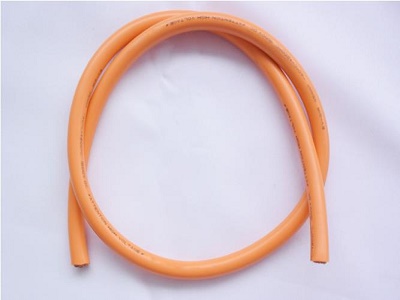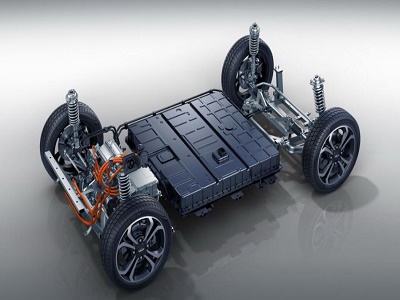



High-voltage cables for new energy vehicles are generally compose of high-voltage cables, connectors, protective materials mounting brackets, sealing rubber rings, labels, итд. The following figure is a typical high-voltage wiring harness assembly.
High-voltage cables are compose of conductors, изолација, sheaths, shields, aluminum foils, tapes, and fillers.
На садашњи, the conductors in the new energy vehicle industry mostly use oxygen-free copper wires. So copper wires with an oxygen content of less than 0.001% and a high purity. And the copper content is above 99.99%.
The flexibility of high-voltage cables is mostly determine by the design of the conductors. This is why high voltage cables use special conductors with a large number of very small diameter monofilaments. And then concentrically twiste to form the soft conductors required for high-voltage cables. Another advantage of a larger number is better resistance to bending.
The nominal cross-sectional area is a code to guide production and design. And the cross-sectional area of the electrical performance of the cable should base on the conductor resistance. And they can understand as the conductor resistance is within the range of the nominal cross-sectional area. But the conductor cross-sectional area has errors.
Since the conductor resistance and conductor cross-sectional area are range value. And the outer diameter of the conductor can confirm according to the communication between the supply and demand sides. And the number of conductors is also different.
На садашњи, the common materials use for the industry include low-smoke halogen-free cross-linked polyolefin, silicone rubber materials, and fluoroplastic materials.
The advantages and disadvantages of the current high-voltage cable insulation and sheath design in the car are as follows:
Cross-linking is the transformation of high molecular polymers from thermoplastic materials with a chain structure. So thermoplastic materials will melt and flow when heated. And the processing of cable insulation or sheathing takes advantage of this feature.
When people hear the term mineral insulated cable, many immediately think of harsh environments like…
As telecommunication networks and power transmission systems grow rapidly, the demand for reliable and cost-effective…
In large-scale oil and gas projects, industrial cables are not just accessories—they are the "nervous…
In the world of electrical connections, cable lugs—also known as cable ears or cable terminals—are…
When choosing the right rubber cable for an electrical engineering project, it is critical to…
Dear partners and customers: January 29th, 2025 is the Chinese Lunar New Year – Spring…